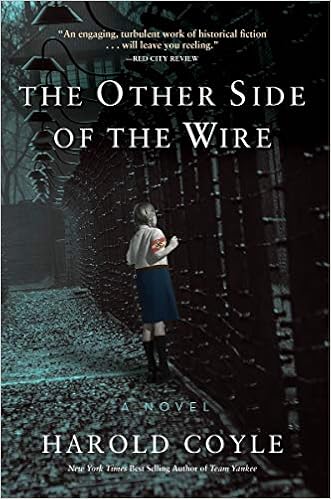
About the Book:
The story of an orphaned Jewish child in 1935 who disguises their identity to escape religious persecution and eventually is adopted by a high-ranking Nazi family. The main character struggles with internal and external acceptance, but ultimately and incredibly acts for herself and for the betterment of the world around her. The author describes the main themes of the book as: “the struggle of a child to belong, the seduction of youth by a corrupt system, and an effort to atone for willful ignorance and the sins of the father.”
Please welcome Harold Coyle:
What would you do in order to survive? It is a question that cannot be answered unless you understand the circumstances you find yourself in and, just as important, what your choices are.
For Solomon Perel, a German Jew born in 1925, the choices he had to make were grim. His story recounted in his book I Was Hitler Youth and depicted in the movie Europa, Europa is a testament to the truism fact is stranger than fiction. It was also the inspiration for The Other Side of the Wire.
A reader will find the story itself well within the boundaries of historical fiction. Events and historical figures touched upon are all drawn from the history of the period. An appendix at the end of the novel expands upon the importance of events and people crucial to the story. It is the manner in which the protagonist seeks to avoid a future without promise and, in doing so, became part of Germany’s resurgence that has proven to be a point of contention with some who were afforded the opportunity to review the book in advance of publication.
Although the story is not about the subject, the issue of sexual reassignment surgery is one of those hot button topics that divide us. Some readers will dismiss The Other Side of the Wire on this basis alone. That is unfortunate, for there were several underlying themes that are touched on that are as relevant today as they were in the 1930s and 1940s.
The first is the ease with which the Nazi leadership seduced the German youth. To me, it is perhaps the most important, one that cannot be ignored, for it is happening again in various guises today.
The second is the influence the state seeks to exert on children, making them useful instruments of the state. All schools, be they public or private, have the task of molding their charges into productive members of the school’s society. Hitler made this point in a speech on November 6, 1933 when he told of a man who informed him he would never support the Nazis; ‘I will not come over to your side,’ I calmly say, ‘Your child belongs to us already. What are you? You will pass on. Your descendants, however, now stand in the new camp. In a short time they will know nothing else but this new community.’
The final theme, one I came to realize as I was finishing the piece, was the story I was writing was a modern-day journey into a very different Heart of Darkness. Like the fictional journey Joseph Conrad’s protagonist took, Hannah found herself journeying ever close to the evil she, as a child, had thought had not existed. In that story, Marlow is able to regain his sense of humanity by lying to Kurtz’s wife when she asks what her husband’s last words were. Hannah regains her humanity by atoning for the sins of her adopted father and her own failings.
In writing The Other Side of the Wire, I wish to depict things as they were as best I can.
History is what history is. To ignore the lessons of our past is to condemn future generations to the horrors and suffering our forebears endured. To me, that would be a crime that makes what the Nazis did all the more terrible.
Thank you, Harold, for sharing this with us. History needs to be learned so we don’t repeat those atrocities.



